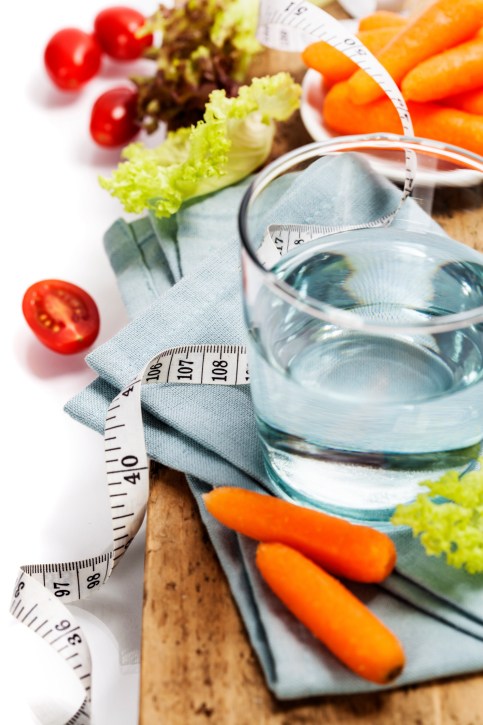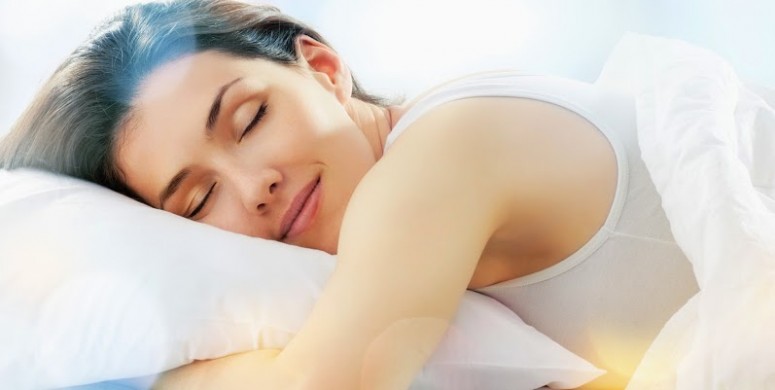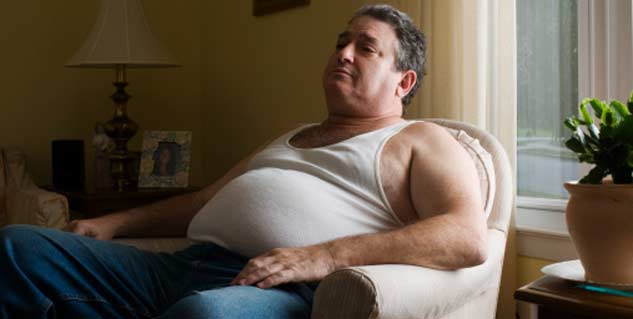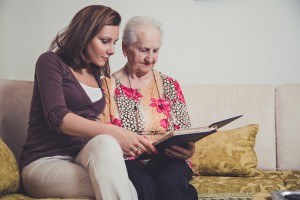Gallstones (cholelithiasis) risk increases with high BMI, rapid weight loss
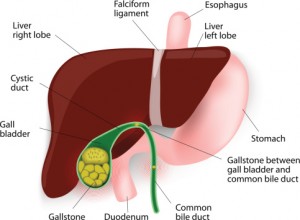 Gallstone risk can increase with a high body mass index (BMI) and with rapid weight loss. Gallstones form in the gallbladder, an organ that aids with digestion by storing bile and secreting it into the small intestine in order to break down food.
Gallstone risk can increase with a high body mass index (BMI) and with rapid weight loss. Gallstones form in the gallbladder, an organ that aids with digestion by storing bile and secreting it into the small intestine in order to break down food.
Gallstones, solid material found in the gallbladder, develop due to cholesterol and pigments found in bile. There are two types of gallstone: cholesterol and pigment gallstones. Cholesterol gallstones account for 80 percent of gallstones and are usually yellow-green in color. Pigment gallstones are small and dark and made up of bilirubin.
Previous study shows link between elevated BMI and increased risk of gallstone disease in women
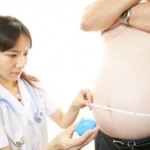 Previous research found a link between elevated BMI and an increased risk of gallstones in women. In order to reach their findings, the research team looked at 77,679 participants; 4,106 participants developed gallstones during the 34-year follow-up period.
Previous research found a link between elevated BMI and an increased risk of gallstones in women. In order to reach their findings, the research team looked at 77,679 participants; 4,106 participants developed gallstones during the 34-year follow-up period.
Those who developed gallstones tended to be older, female, and less physically active. Gallstone patients were also more likely to be on hormone replacement therapy and consumed less alcohol in comparison to those without gallstones. Furthermore, a higher body mass index was shown to be a factor for gallstones as well.
“Obesity is a known risk factor for gallstone disease and our study suggests that elevated BMI likely contributes to the development of this disease. These data confirm that obesity adversely affects health, and lifestyle interventions that promote weight loss in overweight and obese individuals are warranted,” said research lead, Dr. Anne Tybjærg-Hansen.
Rapid weight loss may increase the chances of developing gallstones
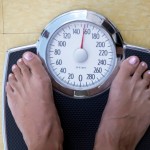 Although a high body mass index has been associated with the development of gallstones, rapid weight loss, too, can contribute to gallstones. When we lose weight quickly it causes fat to be burned off quickly, which in turn allows for cholesterol to seep into bile and lead to cholesterol gallstones.
Although a high body mass index has been associated with the development of gallstones, rapid weight loss, too, can contribute to gallstones. When we lose weight quickly it causes fat to be burned off quickly, which in turn allows for cholesterol to seep into bile and lead to cholesterol gallstones.
Some methods that make you lose weight rapidly and can lead to gallstones are weight loss surgery and consuming a very low calorie diet. Furthermore, weight cycling can also lead to gallstones as you dramatically lose and gain weight, which increases the risk of developing gallstones.
Therefore, it is recommended that you avoid crash diets or dramatic weight loss, especially if you want to avoid developing gallstones.
Causes and symptoms of gallstone
Although we understand what creates gallstones, it isn’t fully understood why they are caused. What is known is that higher rates of gallstones are seen among the following:
- Overweight or obese people – especially women
- Pregnant women
- People who have lost a large amount of weight
- Weight cycling participants
- Women who take oral contraceptives
- Women undergoing hormone therapy
- People with close family members who have had gallstones
- People who consume high amounts of dietary fat
- Being over the age of 60
- Native American Indians
- People who take statins
- Diabetics
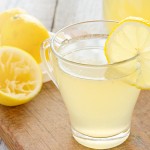 Symptoms of gallstones include:
Symptoms of gallstones include:
- Pain in the right side of the body, below the ribs
- Back pain
- Nausea
- Vomiting
- Sweating
- Restlessness
Other symptoms of gallstones may include jaundice, infections, pancreatitis, and biliary colic – a painful condition where a gallstone passes through a bile duct into the duodenum.
Treatment and prevention of gallstones
If gallstones are not causing any symptoms, treatment may not be necessary, but if symptoms and complications do arise, your doctor may send you to a gastroenterologist who specializes in digestive issues.
A typical treatment for gallstones is to remove the gallbladder as we can live without it. But if a person cannot undergo surgery for other reasons, non-surgical options are available. Nonsurgical treatment involves dissolving the gallstones through either oral dissolution therapy or shock wave lithotripsy.
Surgical options for gallstone removal include:
- Laparoscopic cholecystectomy: Several tiny incisions are made in the abdomen and a laparoscope is inserted. Instruments are then inserted to separate the gallbladder from the liver, bile ducts and other structures. The gallbladder is then removed from a tiny incision.
- Open cholecystectomy: This form of surgery involved larger incisions and will be done if the gallbladder is severely inflamed or if there were complications with a laparoscopic cholecystectomy.
Home remedies and diet for gallstones
Diet can play a role in the development of gallstones. For example, a diet high in calories and refined carbohydrates and low in fiber can contribute to gallstones. Additionally, being obese or experiencing rapid weight loss can also contribute to gallstones.
Here are some home remedies and diet tips you can use to help treat gallstones.
 Drink apple cider vinegar in water or apple juice to help relieve pain due to an attack. Apple cider vinegar also reduces cholesterol produced by the liver.
Drink apple cider vinegar in water or apple juice to help relieve pain due to an attack. Apple cider vinegar also reduces cholesterol produced by the liver.- Drink lemon juice.
- Drink vegetable juice – not the premixed cocktail versions, but pure juice from vegetables.
- Increase fiber intake.
- Rub castor oil over your abdomen, especially where your gallbladder is located.
- Drink pear juice or consume pears.
- Drink moderate amounts of wine.
- Cut down on fatty foods.
By incorporating these home remedies, along with your doctor’s care, you can better treat gallstones and prevent future attacks.
5 things that increase your risk of kidney stones
Kidney stones are incredibly painful stones which form inside the kidneys. There are many reasons why a kidney stone would develop, such as lack of water, too much calcium build-up and excess uric acid which can occur from a high-protein diet. There are also other causes for kidney stones which you may not be familiar with but you should know in order to prevent the excruciating pain. Continue reading…
-
What Strategies Can You Use To Make Your Fat Loss Program Successful
To be quite honest, these strategies that will make your fat loss prog
-
Weight Loss and Green Tea - Useful Facts You Might Not Know
Green tea has been considered by many as
-
Fat Burning Foods - Do They Really Burn Fat?
Fat burning foods are generally common a
-
Reasons That Weight Loss Camps Are Successful
For years weight loss camps for kids were filled will teen age girls w
-
How Women Over 40 Can Achieve Permanent Weight Loss - The Most Important Dangers Preventing Your Ab
If you are a woman over 40, you may be u
-
No More Low-Fat Cheese: Four Tasty Swaps for a Healthy Approach to Cheese
(HealthCastle.com) When y
- DON'T MISS
- Why Do Warm-ups?
- Why Weight Control Is More Crucial Than Weight Loss
- Lose weight now
- 5 Realistic Ways To Tackle Weight Loss
- Eliminating the Excess Pounds Naturally
- Weight Loss Programs: choosing the right one among the many
- Healthy and Quick Meals
- Four Ways to Increase Fat Metabolism
- Lose Weight with Proper Nutrition
- Diet Tips To Help You Succeed
